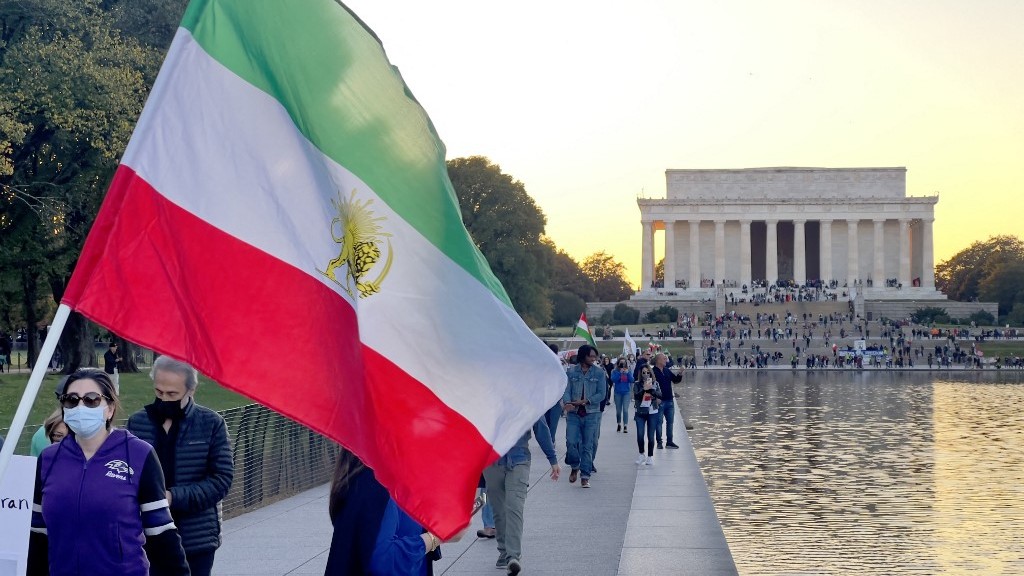This remains the best possible mechanism to deescalate tensions with the West, but Tehran also needs to pursue bold economic and social reforms at home
By Seyed Hossein Mousavian

As the death of 22-year-old Mahsa Amini in the custody of Iranian morality police has fuelled protests across the country, the European Union last month imposed new sanctions on Iran. German Foreign Minister Annalena Baerbock said the EU would not close its eyes to the crackdown in Iran and was mulling further sanctions, while exploring whether to classify the Revolutionary Guards as a “terrorist organisation”.
The West should obtain a coherent analysis of the political landscape before adopting policies
When I was the Iranian ambassador in Germany (1990-1997), as the US pushed an agenda to further isolate Iran through sanctions, Germany advocated for dialogue and engagement policies. Things are very different today.
Meanwhile, the Islamic State has not missed the opportunity to terrorise ordinary Iranians: last week, at least 15 people were killed when the group attacked a Shia shrine in the historic city of Shiraz.
Supreme Leader Ayatollah Ali Khamenei has blamed western powers for the current unrest in his country, noting: “These riots and insecurities were designed by America and the Zionist regime, and their employees.” Iran’s eastward pivot has been pursued more aggressively since President Ebrahim Raisi took office, with obvious signs of the state’s robust shift towards Russia and China.
“The world is approaching a new order in which the US will be isolated and Asia will rise to power,” Khamenei told a group of students this month. “The signs of the US’s decline are obvious. They have economic, social and moral problems inside the US. There are discords and bloody divisions.”
Agreement in limbo
In the Ukraine war, Iran has been accused of supplying Russia with drones, allegations Tehran initially denied as “unfounded and unsubstantiated”. However, last week, for the first time, Iran acknowledged that it had supplied Moscow with drones but said they were sent before the war in Ukraine. Iranian Foreign Minister Hossein Amirabdollahian said a "small number" of drones had been supplied to Russia a few months before Moscow's forces invaded Ukraine on 24 February 2022.
Also, last week witnessed a stronger tone by US President Joe Biden who told supporters at a campaign rally: “Don’t worry, we’re gonna free Iran.” Biden's statement is a clear violation of international rules and regulations undermining the non-interference principle enshrined in Article No 7 of the United Nations Charter. In response, Raisi said: "Iran was liberated 43 years ago and is determined not to be taken hostage by you (America) again."
Meanwhile, as thousands of Iranian expats in western capitals have taken to the streets in support of the ongoing protests, the revival of the nuclear deal remains in limbo.
If western powers try to corner Iran and reinstate UN-led sanctions, Tehran would likely withdraw from the nuclear Non-Proliferation Treaty. Any military strike by Israel or the US would likely then push Iran towards building a nuclear weapon.
Contrary to the West’s characterisation of recent political developments in Iran, the ongoing social movement does not exhibit the characteristics of a “revolution” that would overthrow the Iranian government, as is often claimed by western media outlets.
A sizeable segment of the Iranian population - particularly the youth - has a whole range of economic, political and social grievances, which have been aggravated by the reimposition of sanctions after the Trump administration’s withdrawal from the nuclear deal. But their grievances and expressions of frustration do not suggest that the Iranian government will be overthrown. The West should obtain a coherent analysis of the political landscape before adopting policies toward the Islamic Republic.
Inclusive policies
Given these trends, there are no easy winners. The best route - one that could ultimately alleviate the current crisis - is the revival of the Iran nuclear deal. This remains the best possible mechanism to ensure that Iran does not divert its energies towards building a nuclear bomb. Revival of the deal would deescalate tensions between the West and Iran, and facilitate the international community’s agenda for a Middle East zone free of weapons of mass destruction.
To address the internal dissatisfaction of the Iranian people, the government must revive the nuclear deal and make bold decisions on economic reforms and more inclusive social policies.
There are about six million Iranians living overseas constituting 7 percent of the total population of the country. Many of them have family and assets in Iran but are too afraid to visit the country.
This has caused the ire of thousands of Iranian expats and constitutes a major reason for protesting and calling for change.
In 2018, over 70 members of Iran's parliament signed a draft law to declare a general amnesty and judicial immunity for diaspora Iranians.
When I led the foreign relations committee of Iran’s National Security Council (1997-2005), I proposed a state decree on “general amnesty for Iranians abroad”, which I believe could increase social solidarity. It never came to fruition, but the government today would do well to consider it.
In tandem with more inclusive social policies at home and Iranian neutrality with regards to the Ukraine war, a rapprochement between Iran and Saudi Arabia would be vital to ensuring peace, stability and security in the Gulf and the broader Middle East.
Five rounds of talks in Iraq between Saudi Arabia and Iran have been hailed as a “positive” development. The next round could be carried out via foreign ministers, in order to finalise the resumption of diplomatic relations. Iran-Saudi cooperation could not only facilitate a collective security system in the Gulf, but also help to end the crises in Yemen, Syria and Iraq.



No comments:
Post a Comment